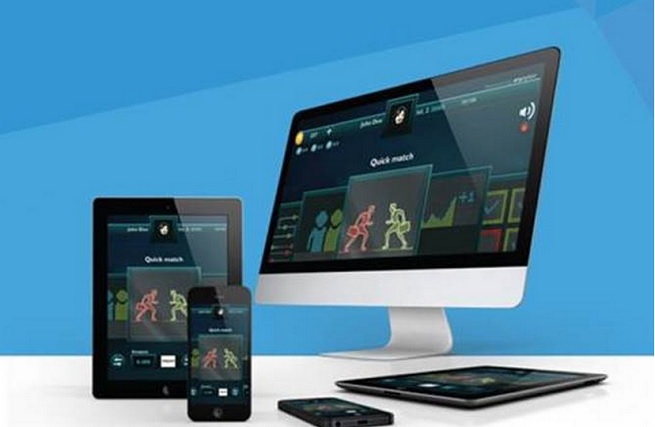Indie game developers are sprouting all over the place in the age of digital games. But those developers are finding it tough to get their games to run on every platform. So Gingee is announcing today that, after three months of collecting developers in a quiet way, it has created a cross-platform 2D game development engine that runs games on a bunch of platforms at full native speeds.
That is no small achievement, as other game-development platforms with lots of developers have been trying to make their games run speedy elsewhere. But Gingee is trying to one-up the likes of Unity and Cocos 2D by with something that makes the code run in as fast a way as possible. Already, more than 1,000 game developers have started using it in the past three months.
“It allows you to maintain a small team that executes a vision across multiple markets and platforms,” said Roei Livneh, the chief executive of Tel Aviv, Israel-based Gingee, in an interview with GamesBeat. “Unlike any other solution out there, we have true cross-platform game development. We have one code, one graphics, one pipeline, and we deploy them to all platforms. We think this is going to be very good for developers.”
Normally, game developers create a game for one platform and then optimize it to run on others. That’s even the case with other cross-platform game engines. But indie developers don’t have the resources or the time for that.
Livneh said that the Liquid UI engine enables developers to write their code once. That is then automatically compiled to the native code of each target platform. It uses mathematics to “unwrap” that code which works on any device, with any screen, at any resolution, as needed. It doesn’t matter what kind of input device is used with that device. The code is automatically adapted to work with it. It works with iOS, Android, the Amazon Fire TV, the web, smart TVs, Macs, and Windows computers.
Gingee promises an identical experience over all of those platforms. Players should have a consistent game regardless of the device they’re using.
For instance, in web games, you can often hover the mouse cursor over an object to activate something. With touch, you don’t have that. The Liquid UI technology is smart enough to figure that out, Livneh said.
Often, game engines will adapt that code to other devices by cropping or scaling images. That distorts them and doesn’t work so well. Gingee’s code is developed to work directly with an operating system, not through an interpreter that slows the code down.
Livneh said that the engine has also been created with non-developers in mind. It is simple enough so that non-experts can learn how to use it and create games. It was tested at a recent weekend hackathon hosted by Coca-Cola and ad agency BBH. Eleven apps, which novices created, were the result.
It won’t be easy fending off rivals, which include Cocos 2d, Unity, Corona, YoYo Games, Epic Games (Unreal Engine), and Marmalade. Livneh said his 2D game engine is more efficient than 3D tools at creating fast 2D game code. That could weed out some of the other players.
The Gingee Liquid UI engine is available for free with inexpensive support packages. The professional version costs $42 a month, and companies can use it for $16,000 a year.
It has built-in social features, monetization, and analytics. And Livneh said it reduces the typical time to develop a game. It takes a few days to convert a game from Facebook to mobile devices, Livneh said.
Livneh started Gingee in 2011. A game developer with 11 years experience at companies such as Plarium, he was searching for a cross-platform game tool. And he was frustrated. So he pulled together a team of 13 employees and created his own game engine. For the past two years, Gingee has been backed by angel investors. It has raised $1.2 million to date.
“We support everything except BlackBerry and Windows Phone,” Livneh said. “But we are planning to add 3D and support more devices like those in the future.”
VentureBeat's mission is to be a digital town square for technical decision-makers to gain knowledge about transformative enterprise technology and transact. Learn More

